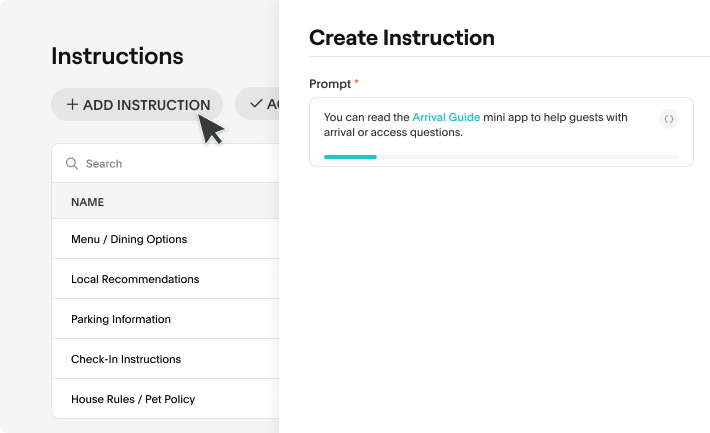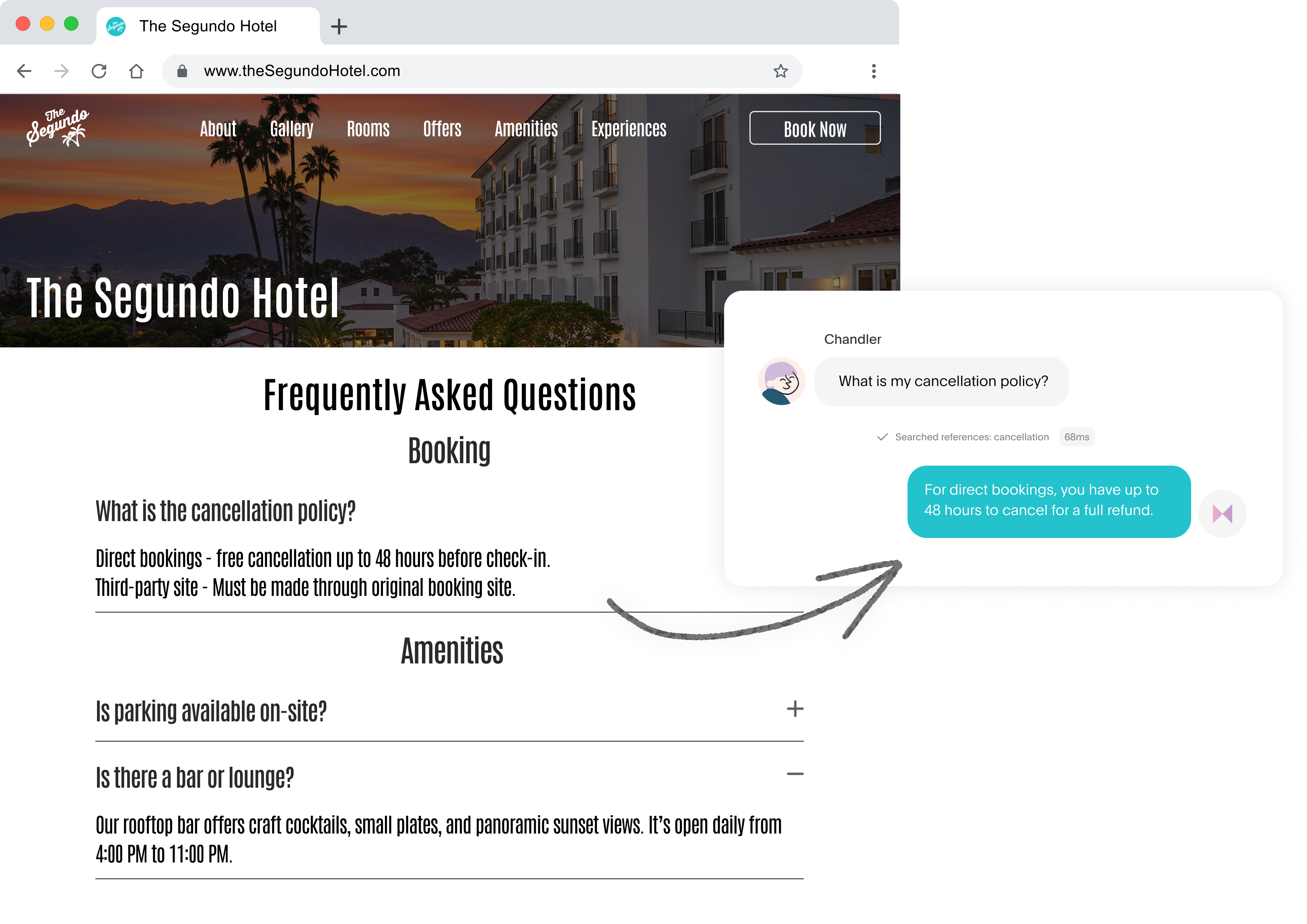8 Essentials for Being a Great Manager
Here’s a scenario for you:
Employee A has consistently not been meeting the expectations at work, and the other employees have to pick up extra tasks to get the work done. Employee B eventually gets fed up with Employee A, and they lash out on them. Since they’re both on shift together at the front desk, there’s tension and the customers begin to feel the negativity. The customers go on to tell others about the poor customer service experience, and the company’s reputation suffers from it. Eventually, Employee B decides to quit because the issue was never resolved. Other employees also get tired of picking up Employee A’s work, and they start to burn out and consider quitting, too.
Sounds like a nightmare, right? Managing people is no easy task. Lucky for you, we’ve compiled a list of 8 essentials that managers should master.

1. Communication
When you’re managing different people, the most important skill you need is effective communication. If done right, effective communication can help you avoid misunderstandings and conflict in the workplace while fostering better work relationships. To become a better communicator, there are a few things you need to remember.
Listen to understand. Oftentimes in conversations, people try to come up with what they’re going to say next while others are talking. Instead, be engaged and fully take in what the other person is saying, and you will reach a better understanding of them.
Pay attention to nonverbal cues. Communication is more than just the words coming out of your mouth. In fact, words only make up about 7% of the impact of a message, whereas nonverbal cues make up 55%, according to body language researcher Albert Mehrabian. Make sure your body language matches the message you’re trying to get across. It’s hard to believe you’re happy for your employees when your arms are crossed.
Manage your emotions. Sometimes you can get heated or stressed during a conversation, and you say something you later regret. Recognize if your emotions are out of balance with the message you want to convey, and take a moment to calm down before responding.
Be open and honest. Communication is all about understanding each other, and it’s only possible if you are open and honest about your thoughts and feelings in a respectful way. On the other end of this, it’s also important to accept honest communication from others in a positive and constructive way.

2. Conflict Resolution
As a manager, it’s very likely that you will need to resolve a conflict at some point, whether it be between two employees, between an employee and a customer, or between an employee and yourself. There are many different approaches to solving conflict, but we have some key pointers for you.
Listen effectively. Just like in any other type of communication, it’s important to truly listen to the other party when there’s a disagreement. Make sure that everyone involved in the conflict is listening to understand rather than just arguing their case.
Focus on the specific areas of disagreement. Sometimes, conflicts can get muddied with grievances from other times. It’s important that the focus is on the current issue at hand, and other problems should be addressed separately.
Clearly express needs on both sides. Both sides need to first understand and acknowledge needs on both sides. In doing so, the parties can then figure out how to best resolve the issue with those needs in mind.
Frame the conflict as an opportunity for growth. Conflicts are usually not fun experiences, but there can be positives that come out of them. They can be great opportunities for people to grow and further develop their problem solving skills.
Do not generalize or escalate. The issue at hand has its own specific components to it, and it shouldn’t be generalized or escalated into a greater problem. If dealt with properly, everyone can move forward after the conflict is resolved.

3. Performance Feedback
Performance feedback is a great way for managers to set clear expectations and goals for employees to work towards. Not only does it help managers to stay up-to-date with employees, but it also helps employees stay motivated at work. When it comes to how it’s delivered, it’s important to give specific feedback based on performance alone and not on personality. Feedback should be given at other points in time, rather than just during review season, so employees can be reassured that they’re doing well or guided towards better performance. Performance reviews should also be a two-way conversation, so employees can have a say in how they’ve been doing.

4. Fairness in Policies
You might get along with some employees more than others, but as a manager, it’s crucial to not let this get in the way of how you treat your employees. Apply all rules in the same manner to everyone. From an employee’s perspective, it’s much easier to trust your manager when you know they will treat you fairly and equally no matter what.

5. Be a Knowledge Resource
If you’re a leader in any organization, people will look to you for guidance. You should know all the important aspects of the company, and you should be able to quickly recall this information to help people or to make decisions. You should also be well aware of labor laws and their application in your workplace. The key is that you are a go-to resource for anything important.

6. Motivate your Employees
There’s no question that motivated employees make companies great. As a manager, it’s your job to keep employees consistently motivated for their work. Here are some easy and effective ways to do so:
Make small weekly goals. Break up long-term goals into smaller ones to make them more manageable and realistic for the short-term. When your employees reach these smaller goals, reward them so they feel like they’re on the right track.
Give incentives. Everyone likes fun incentives, and it’s even more fun when you can gamify them. Create a system of points or something similar that your employees can collect to get a greater reward.
Recognize great work. Recognition helps employees feel like they’re doing something right, and it will help them continue doing a great job. It also creates a stronger connection between your employees and you, which helps to keep them engaged.
Trust your employees. When employees know that they’re trusted, they will step up and take ownership of their work. To build trust between employees and yourself, be transparent with them about company updates and issues, and let them give feedback. In doing so, you are creating a stronger relationship with your employees, and they are more likely to be invested in the company and its development.
Lead with purpose. If you can help your employees find purpose in the company and their work, they can become intrinsically motivated to do a great job and feel a greater sense of fulfillment.

7. Utilize Strengths
Studies show that focusing on employees’ strengths improves their work engagement. It makes sense—people like doing things that they’re good at. To be a great manager is to be able to recognize the unique strengths that your employees have and utilize them to work towards common goals in the company. However, it might take more than just asking employees about their strengths to execute this. Sometimes, people aren’t aware of their strengths, so it’s up to their manager to point them out and encourage their development through regular conversations and projects focused on those strengths.

8. Create a Positive Work Environment
If everyone is spending a solid chunk of their days at work, the goal is to make that work environment as enjoyable as possible. After all, employee satisfaction and turnover rate is closely linked with the work environment. As a manager, you have more control over the work environment, and you can create a positive environment by following some of these tips.
Treat everyone with respect. This should go without saying, but a positive work environment is founded on mutual respect all around.
Provide opportunities for growth. People generally want to learn more and move up in their career. It’s important to allow for career development opportunities within your organization so that your employees have something to strive for.
Foster social relationships. You see these people all the time— why not try to be friends with them? Hosting social events can create stronger connections, and those connections can lead to a more enjoyable workplace that people are more inclined to commit to.
Show empathy. Workplace hierarchy aside, we’re all human and want others to be kind to us. Treating your employees kindly fosters positive emotions, and happy employees make a happy work environment that can weather any storm.
Time is one the greatest asset and one of the things that [Akia] has helped us out as a property tremendously.
Wanny M.
Marketing Associate
Time is one the greatest asset and one of the things that [Akia] has helped us out as a property tremendously.
Ethan Fishbane
Director of The Front Office, Prince Waikiki
Schedule of events and useful links
Never miss a beat with our comprehensive schedule of events and collection of useful links.

Schedule of events and useful links
Never miss a beat with our comprehensive schedule of events and collection of useful links.

See Akia in action!
Schedule a demo today and learn how our hospitality platform can transform your operations and elevate your guest experience.














